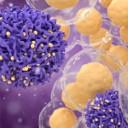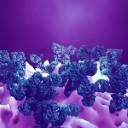-
December 20: The Week in Cancer News
Stool-based colorectal cancer screening may come with unexpected costs, and losing weight is associated with reduced breast cancer risk in postmenopausal women.
by Kate Yandell
-
December 13: The Week in Cancer News
Hispanics living in the U.S. are at increased risk of being diagnosed with and dying from cervical cancer, and a cancer researcher and survivor writes about the problem with focusing on one universal cancer cure.
by Kate Yandell
-
December 6: The Week in Cancer News
A study suggests an association between hair dye use and breast cancer, and the U.S. Food and Drug Administration adds a new indication for an immunotherapy-chemotherapy combination.
by Kate Yandell
-
November 15: The Week in Cancer News
A study suggests the rate of melanoma diagnoses in adolescents and young adults is falling, and a health care reporter writes about the many difficult decisions she had to make after her cancer diagnosis.
by Kate Yandell
-
November 8: The Week in Cancer News
Some oncologists do not discuss the costs of genomic testing and resulting treatments with their patients, and preliminary results indicate that a cancer therapy using the CRISPR gene-editing technique is safe.
by Kate Yandell
-
November 1: The Week in Cancer News
Another drug shows preliminary signs of efficacy in treating patients with KRAS-mutated cancer, and a study indicates that minority cancer patients struggle to find doctors who share or understand their culture.
by Kate Yandell
-
October 25: The Week in Cancer News
A physician writes about her experiences treating patients with CAR-T cell therapy, and the U.S. Food and Drug Administration expands approval of an ovarian cancer drug based on a new biomarker.
by Kate Yandell
-
October 18: The Week in Cancer News
A chemotherapy drug used to treat childhood cancer is in short supply, and organizations update exercise recommendations for people who have been diagnosed with cancer.
by Kate Yandell
-
October 11: The Week in Cancer News
A researcher with melanoma writes about his experiences trying to modify his gut microbiome, and an article discusses what it means to call a cancer treatment “well tolerated.”
by Kate Yandell
-
October 4: The Week in Cancer News
More than half of patients with advanced melanoma who took an immunotherapy combination were alive five years later, and a targeted therapy appears to cause high blood pressure.
by Kate Yandell
Cancer Talk
Treatment Combination Improves Survival in EGFR-positive Lung Cancer
Adding chemotherapy to targeted therapy improves outcomes for people with advanced EGFR-positive non-small cell lung cancer.
by Sandra Gordon
Lessons From 20 Years Living With CancerMultiple myeloma survivor Jonathan Gluck reflects on uncertainty, and the scientific progress that has kept him living with cancer for more than two decades.
by Eric Fitzsimmons
The Enduring Importance of Cancer Disparities ResearchOpening session from AACR conference highlights how perseverance and adversity have informed cancer disparities research over the years.
by Eric Fitzsimmons
Most Cancer Survivors Don’t Meet Healthy Diet GoalsDespite research linking fruits and vegetables to cancer survival, many people do not change their eating habits after diagnosis.
by Darlene Dobkowski













